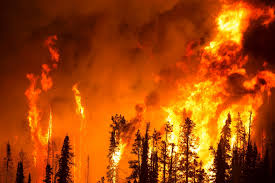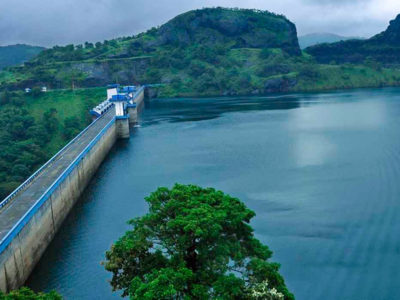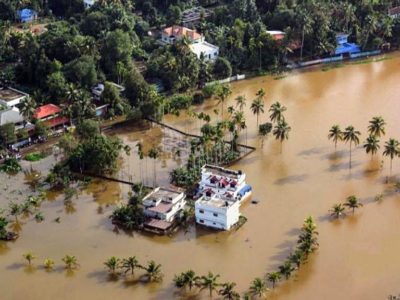Climate Adaptation
What’s the Best Way to Motivate Climate Action?
Answers reside deep in the heart of Texas
Texans have a few things to teach policy advocates about the way to incite and bolster political will for climate action at the local level. This is not a claim based on a lack of climate action, but rather because of a new surge of it. The majority of Texans have begun to recognize the …
Continue reading “What’s the Best Way to Motivate Climate Action?”
CONTINUE READINGFrom the Wildfire Files
Wildfires are getting worse and worse. Here’s what we know about the situation.
I don’t normally do this, but given the terrible wildfires now hitting the state, I thought it was worth doing a reprise of some posts on the subject from earlier this summer. Of course, there’s more information in the original posts, if you want to click over to them. Spreading Like Wildfire In 2017, wildfires …
Continue reading “From the Wildfire Files”
CONTINUE READINGWildfires: Managing the Risks
How can we limit the spread of wildfires and save people and property?
Wildfires are already a serious problem, and climate change will only make the problem worse, as I’ve discussed in my two prior posts. Reducing carbon emissions can help keep the problem from growing, but we need to deal with the risks we’re already facing. That is going to require a portfolio of risk management strategies. We …
Continue reading “Wildfires: Managing the Risks”
CONTINUE READINGBurning in the Heat
Wildfires were bad enough already. Climate change is making them worse.
Fires have been unusually severe lately. According to one scientist, “’[I]n the late 20th and early 21st century, with these hot droughts, fires are ripping now with a severity and ferocity that’s unprecedented,’ says Tom Swetnam. . . . A fire in the Jemez Mountains Swetnam studies burned 40,000 acres in 12 hours, a ‘horizontal …
Continue reading “Burning in the Heat”
CONTINUE READINGSpreading Like Wildfire
They don’t get as much attention as floods or earthquakes, but wildfires are deadly serious.
This is the first of a three-part series about wildfires. Massive wildfires are a growing problem, posing risks to people and the environment. Considering that my house is located only a few miles from the 1991 Oakland Hills fire, which killed 25 people, destroyed 2800 homes, and caused $1.8 billion in damage, this is an …
Continue reading “Spreading Like Wildfire”
CONTINUE READINGAnother Dam Climate Adaptation Problem
Report Suggests That Poor Management Intensified Kerala Flood Devastation
The Economic and Political Weekly is one of India’s most prestigious journals: for decades it has enjoyed a unique role in driving the Union’s policy conversation, partly because it is peer-reviewed. And this week, it contains a devastating report about how poor dam management exacerbated Kerala’s horrific floods. It’s an obvious issue: if dams have …
Continue reading “Another Dam Climate Adaptation Problem”
CONTINUE READINGThe Water Next Time — And This
Kerala Floods Signal That Climate Change Is Here. Now.
With the daily freak show of American politics, you might be forgiven for not noticing one of the most horrific disasters in years: the devastating floods in the southwestern Indian state of Kerala, at the tip of the subcontinent. More than 500 people have died, thousands of homes have been inundated, and more than 1.5 …
Continue reading “The Water Next Time — And This”
CONTINUE READINGIs FEMA Ready For a Tumultuous Future?
FEMA has a lot of work to do to get up to the mark on disaster response and risk mitigation.
We face a future of increasing peril from disasters. One reason is climate change; another is that more people live in coastal areas where risks are especially high.We’re currently seeing the results of climate change in the California fires, and we saw both factors at work in last year’s flooding in Houston after Hurricane Harvey. …
Continue reading “Is FEMA Ready For a Tumultuous Future?”
CONTINUE READINGSecretary Zinke Misleads the Public About Wildfires and Federal Public Land Management
Secretary of Interior’s Op-Ed Ignores Science and Land-Use Planning to Falsely Blame Wildfire Risk on “Radical Environmentalists”
Interior Secretary Ryan Zinke published an op-ed today calling for “active management” of our federal public lands to reduce wildfire risk, and blaming “radical environmentalists who would rather see forests and communities burn than see a logger in the woods” for the prevalance and lethality of wildfires in the American West. Zinke’s op-ed is disingenuous, …
CONTINUE READINGSafeguarding Climate Policies
There are several strategies for insulating climate policy from leaders like Trump.
Trump’s election was a surprise. What should not be a surprise is the inevitability of political setbacks for climate policy. We saw that in the U.S. with the shift from Clinton to Bush and then from Obama to Trump. We also saw that in Australia where it meant the repeal of a promising emissions trading …
Continue reading “Safeguarding Climate Policies”
CONTINUE READING










